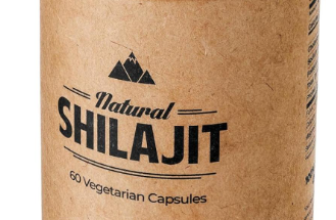Brain Actives Review: Memory Supplement That Boosts Focus
🎯 Brain Actives Review: Memory supplement That Boosts Focus & Learning Speed in 21 Days (Concentration Enhancement That Actually Works)
Can a simple capsule really boost mental sharpness and quicken learning? Or is it just a marketing dream? This review dives into Brain Actives, a memory supplement that promises to sharpen focus and speed up learning.
Many adults look for quick fixes with nootropic supplements. But, the FDA doesn’t check if these supplements work unless they claim to cure diseases. So, it’s key to rely on expert advice and research when choosing brain health products.
In this article, we’ll compare what Brain Actives says with what science and practice show. We’ll also talk about proven ways to boost brain health. These include following diets like the MIND or Mediterranean, exercising regularly, getting enough sleep, and learning new things all your life.
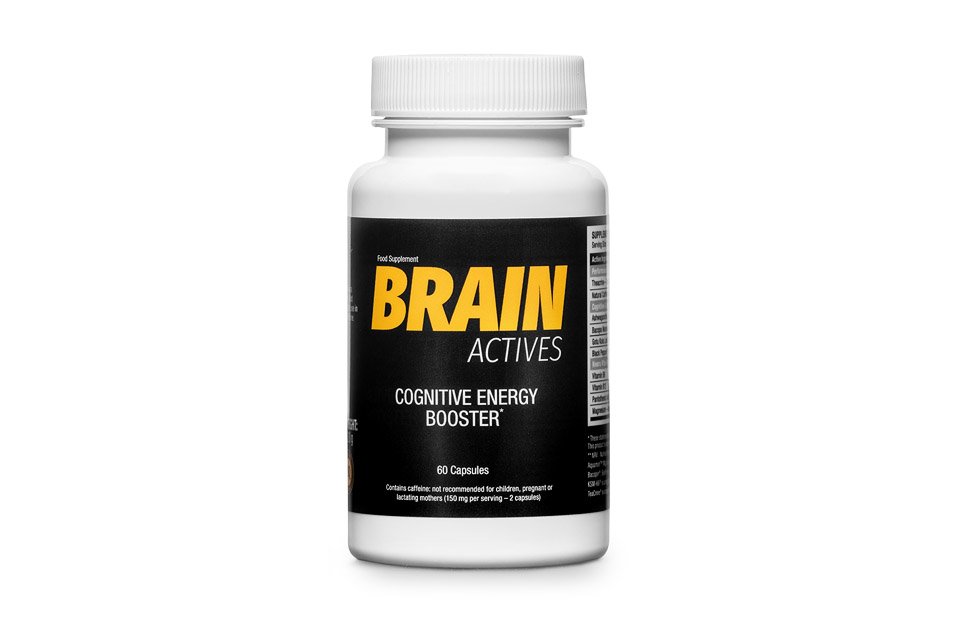
Key Takeaways
- This Brain Actives review examines claims about improving focus, learning speed, and memory.
- No nootropic supplement is FDA-approved for cognitive enhancement; evidence varies by ingredient.
- Proven brain health measures—diet, sleep, exercise—remain the foundation for mental clarity and memory.
- Clinical data support some ingredients more strongly than others; consult a healthcare professional before starting supplements.
- Expect gradual effects for many nootropics; results are often clearer in people with deficiencies or cognitive impairment than in healthy adults.
Brain Actives Review: Memory Supplement That Boosts Focus & Learning Speed in 21
This review examines a memory supplement’s claims, safety, and real-world use. It provides clear summaries of ingredient science, clinical evidence, and user reports. The goal is to help readers decide if this nootropic supplement meets their needs.
The review focuses on three key areas. First, we look at what manufacturers say about improving memory and concentration. Second, we check clinical trials and the quality of evidence supporting these claims. Third, we discuss safety, dosing, and alternatives like diet and sleep.
People with different goals and ages are the target audience. Students aim for quick gains for studying and exams. Professionals need sustained focus during busy days. Older adults want to slow cognitive decline and keep their memory sharp.
Evidence varies by group. Supplements often help those with nutrient gaps or mild cognitive decline more than healthy young adults. This difference is important when considering claims of universal focus or learning speed boosts.
This review is based on evidence and safety. We explain how ingredients work, evaluate human trials, and report side effects. Remember, the FDA doesn’t require proof of efficacy for most supplements, so independent data is key.
Our methodology has three steps. First, we list and explain key ingredients and their roles in memory and concentration. Second, we review clinical evidence, focusing on randomized trials and meta-analyses. Third, we compare user reports with research to set realistic expectations.
We also offer practical advice. This includes when to see a clinician, how to use supplements responsibly, and non-supplement strategies for learning speed. Safety, possible interactions, and clear dosing are stressed to help readers make informed choices.
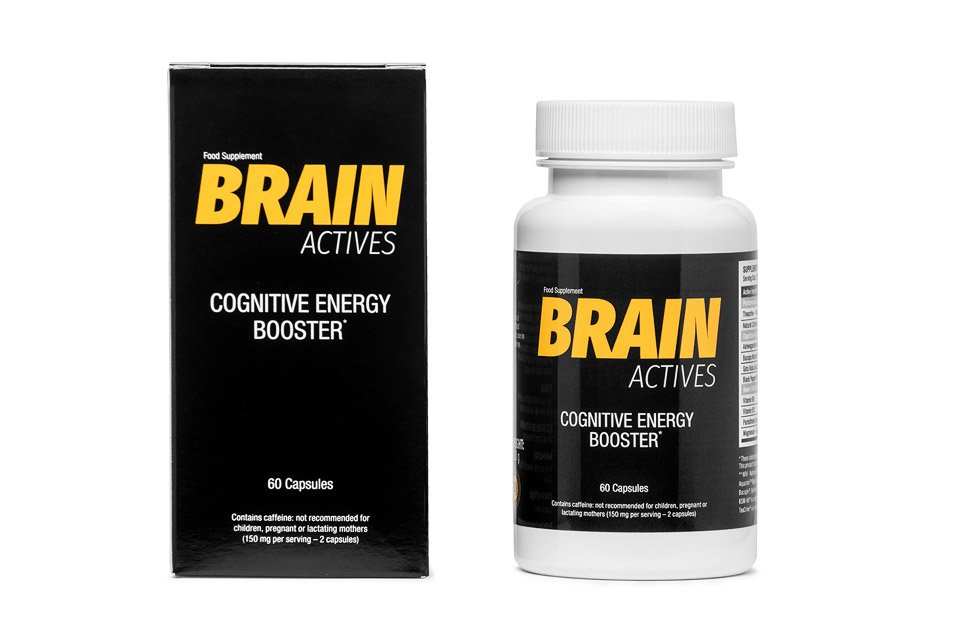
| Review Element | What to Expect | Why It Matters |
|---|---|---|
| Claims Summary | Overview of advertised benefits like memory improvement and boost focus | Places marketing in context of evidence and regulation |
| Target Users | Students, professionals, older adults — needs and likely outcomes | Helps match product to realistic goals for learning speed or concentration enhancement |
| Evidence Review | Evaluation of trials, sample sizes, and meta-analyses | Determines how well a brain actives review stands against rigorous data |
| Safety Assessment | Side effects, interactions, contraindications | Guides safe use and flags when to consult a healthcare professional |
| Practical Advice | Dosing tips, trial period, lifestyle complements | Supports better outcomes than supplements alone for boost focus and learning speed |
What is Brain Actives and how it positions as a nootropic supplement
Brain Actives is a nootropic supplement that supports brain health and mental performance. It’s marketed as a memory booster for students, professionals, and seniors. It aims to enhance focus and learning speed.
Product overview and claimed benefits
The product combines ingredients to improve memory, focus, and quick recall. It promises to boost focus during study or work. It also helps with learning speed with regular practice.
Key active ingredients listed by the manufacturer
Labels often list fish oil, creatine, ginkgo biloba, L-theanine, caffeine, B vitamins, and herbal extracts. These are common in nootropics for brain health. Brands like Nordic Naturals and Pure Encapsulations use clear ingredients.
Formulation style: single-ingredient vs combined nootropic blend
Brain Actives is a blend, not a single ingredient. Blends offer wide benefits but make it tough to pinpoint the active ingredient. They also increase the risk of side effects compared to single ingredients.
Choosing depends on your goals. For a targeted effect, single-ingredient supplements like DHA or creatine are best. For a quick focus and learning boost, a blend might be better, even with less evidence.
Scientific background on common ingredients for cognitive function
Researchers look into many popular compounds for brain health. They focus on omega-3s DHA EPA, L-theanine and caffeine, B vitamins, and choline precursors. They also study herbal extracts like ginkgo biloba, ginseng, and curcumin.
Omega-3s (DHA/EPA)
DHA and EPA are found in fish and Mediterranean diets. Studies show they might lower dementia risk and improve brain aging. But, results from big trials are mixed.
Some groups, like those with low DHA, see clearer benefits. DHA is a big part of brain omega-3s, which is why it’s studied for brain health.
L-theanine and caffeine synergy
L-theanine and caffeine together boost mental performance. Small studies show they improve focus and reaction time. Green tea has both and antioxidants, making it a good choice for focus.
B vitamins and choline precursors
B vitamins like B6, B12, and folate help make neurotransmitters. They also control homocysteine levels. Studies show they help when there’s a deficiency.
But, for those without a deficiency, they don’t always help. Choline precursors like citicoline and alpha-GPC support acetylcholine. They might help memory, but effects are small and mixed.
Herbal extracts: ginkgo biloba, ginseng, curcumin
Ginkgo biloba and ginseng have been used for ages. But, big trials like the Ginkgo Evaluation of Memory didn’t show they prevent dementia. Systematic reviews say they’re not always good for memory in healthy people.
Curcumin shows promise in small studies, like a UCLA trial. It improved mood and memory. But, more research is needed to confirm these findings.
Many nootropics work by improving blood flow or protecting against damage. They don’t work instantly. It takes time to see results. Safety and benefits depend on the compound and the person using it.
Clinical evidence and research summary relevant to Brain Actives ingredients
This section looks at human research on common Brain Actives ingredients. It aims to give a clear view of the evidence without exaggerating its impact. You’ll learn about different types of trials, the strength of their findings, and what big reviews say about supplements for brain health and cognitive function.
Overview of human trials for fish oil, creatine, and other common nootropics
Fish oil studies often focus on DHA and EPA in older adults and those with low omega-3 intake. A 2022 review found that DHA might help improve thinking in some groups. But, big trials rarely show strong effects on preventing dementia.
Creatine studies have grown in recent years. A 2024 review found that creatine can improve memory and speed in processing information. These benefits were more noticeable in vegetarians or those with lower creatine levels. But, results varied across different studies.
Herbal extracts like ginkgo biloba have shown mixed results. Some studies suggest a small benefit in mild cognitive impairment at a dose of 240 mg/day for a long time. But, big studies have not found any prevention of dementia.
Research on synthetic agents like piracetam mostly looks at people with brain injuries or dementia. There’s little evidence that it helps healthy young adults.
Quality of evidence: small studies vs large randomized trials
Many studies are small and short, which can lead to unreliable findings. Trial designs differ, making comparisons tricky.
Large randomized trials are more reliable because they control for bias better. They sometimes disagree with earlier studies. High-quality trials are better at finding small effects and seeing who benefits most.
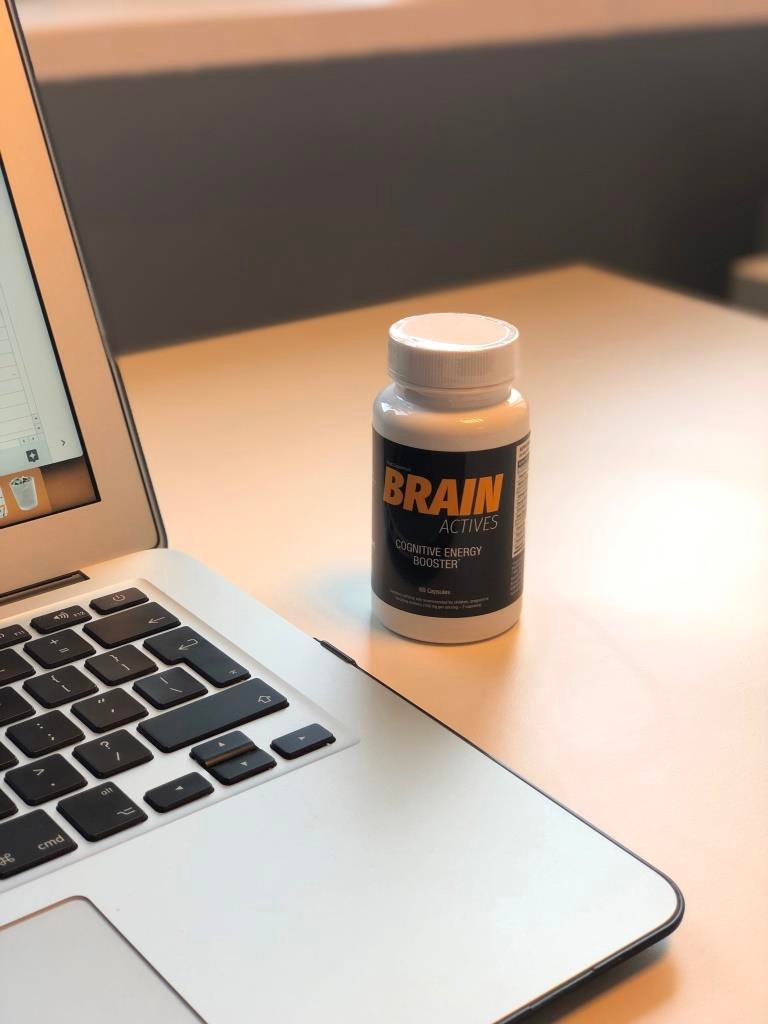
What meta-analyses and reviews say about effectiveness for healthy users
Meta-analyses often find small, specific benefits from supplements. Reviews usually say there’s little evidence for big improvements in healthy adults with normal diets.
Systematic reviews highlight the differences in studies and selective reporting. For healthy people, the evidence shows small and inconsistent gains from these supplements.
Benefits reported by users and potentially realistic outcomes
Many users report small gains, not huge changes. They often mention feeling more alert and clear-headed during study or work. These benefits are usually about everyday tasks, not sudden boosts in intelligence.
Memory improvement claims vs expected magnitude based on research
Marketing often exaggerates memory improvement. Yet, research shows small effects for healthy adults. DHA and creatine can improve processing speed or short-term recall in some groups.
People with low nutrient levels or older adults tend to see bigger benefits. This is compared to young, well-nourished individuals.
Focus and concentration enhancement: short-term alertness vs long-term gains
Caffeine with L-theanine boosts focus and concentration for hours. Users feel better at handling tasks and less mentally fatigued on days they take it. But, long-term gains in attention are less consistent.
Improvements in focus and concentration are more likely if lifestyle factors like sleep and diet are also improved.
Learning speed: plausible effects and who may benefit most (deficiency vs healthy)
Small improvements in learning speed are mostly seen in those with deficiencies or cognitive decline. Healthy students or professionals might see slight gains in reaction times or short-term memory. But, significant leaps in complex learning rarely happen without consistent practice and good habits.
Below is a concise comparison of common, user-noted outcomes against what clinical evidence tends to support. This can help set realistic expectations before trying a supplement.
| Reported outcome | Typical user report | What research usually shows | Who benefits most |
|---|---|---|---|
| Memory improvement | Better short-term recall during tests or meetings | Small-to-moderate gains in specific tasks; larger effects in deficient or older adults | Older adults, nutrient-deficient individuals |
| Focus and concentration | Improved task flow and reduced distraction | Reliable short-term alertness with caffeine + L-theanine; long-term gains need lifestyle support | Students, shift workers, sleep-deprived users |
| Learning speed | Faster comprehension on simple tasks, quicker problem-solving | Small improvements in processing speed; complex learning shows minimal change | Those with cognitive impairment or low nutrient levels |
| Cognitive function | Greater efficiency on routine mental tasks | Some ingredients improve specific domains; broad cognitive boosts are uncommon | Individuals with measurable deficits |
| Mental clarity | Reduced brain fog, crisper thinking during the day | Short-term reductions in fatigue and fog; sustained clarity tied to sleep, diet, exercise | People with poor sleep or high stress |
Safety, side effects, and interactions to consider
Before trying any nootropic product, read safety information and check your current medicines. Many ingredients can cause side effects that range from mild to serious. Combining multiple products raises the chance of supplement interactions that change how drugs work.
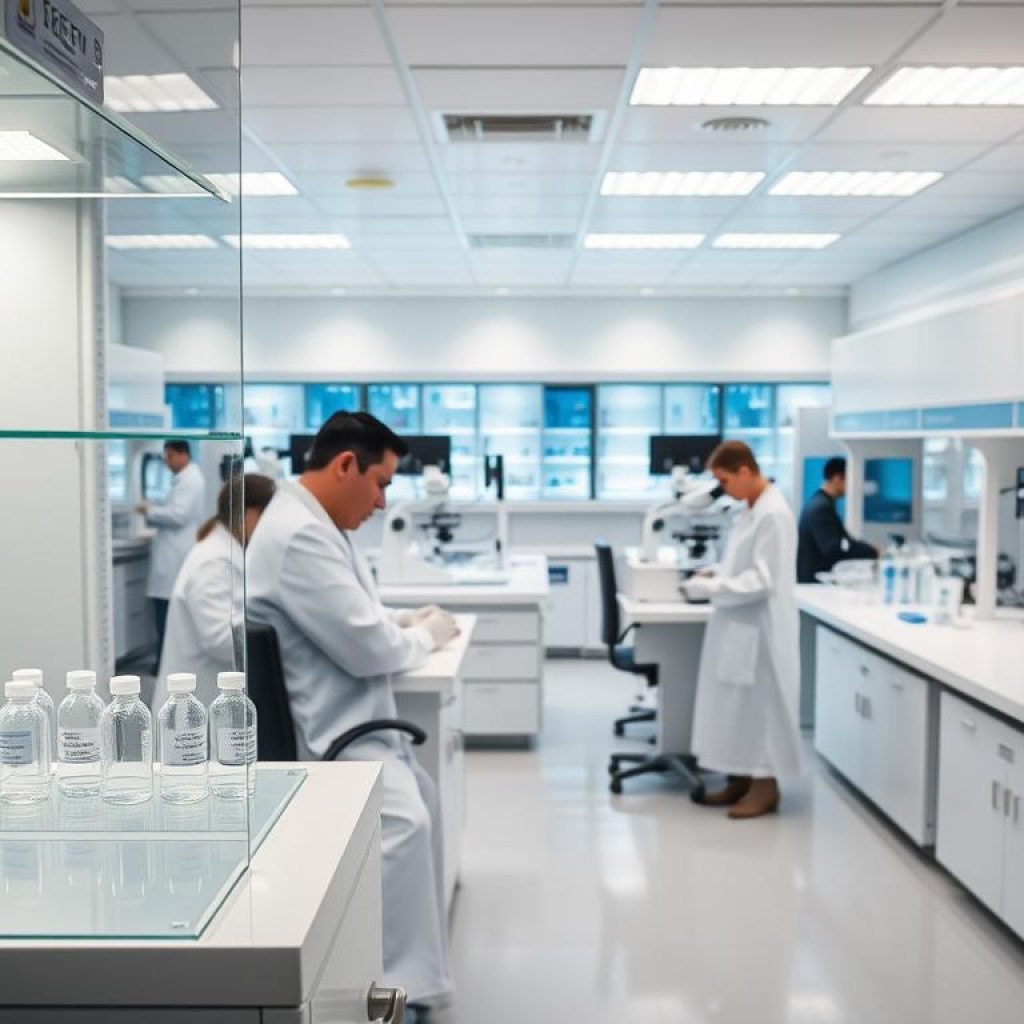
Common side effects linked to nootropic ingredients
Users often report sleep disturbance and jitteriness when stimulants or high-dose caffeine are present. Other possible side effects include upset stomach, headache, and mild irritability. Creatine tends to be tolerated well but can cause gastrointestinal upset or weight gain in some people.
Risks of combining multiple supplements and prescription medications
Mixing supplements with prescription drugs can change drug levels or effects. For example, ginkgo can interact with blood thinners and raise bleeding risk. High doses of fish oil may also increase bleeding tendencies. Caffeine pills and powdered stimulants can lead to overdose, worsening sleep disturbance and pronounced jitteriness.
Contraindications and special populations
Contraindications commonly include hypersensitivity to ingredients and certain medical conditions such as bleeding disorders or uncontrolled hypertension. Pregnancy lactation is a key contraindication for many supplements, as safety data are limited. People with cardiovascular disease, liver or kidney problems, or those taking anticoagulants should consult a clinician first.
| Concern | Typical symptoms | Clinical action |
|---|---|---|
| Stimulant-related effects | Jitteriness, palpitations, sleep disturbance | Reduce dose, avoid late-day use, consult prescriber |
| Bleeding risk | Easy bruising, prolonged bleeding | Review warfarin/antiplatelet use with clinician before starting fish oil or ginkgo |
| Gastrointestinal upset | Nausea, cramping, diarrhea | Try lower dose or take with food; seek advice if persistent |
| Pregnancy lactation concerns | Unknown fetal or infant effects for many ingredients | Avoid nonessential supplements; consult obstetric provider |
| Drug-supplement interactions | Altered medication levels, unexpected effects | Pharmacist or physician review before combining products |
Talk with a pharmacist or healthcare provider to assess individual risk and to reduce the chance of harmful supplement interactions. Keep a list of all prescription medicines, over-the-counter drugs, and supplements to review before starting a new product.
Dosage, usage guidance, and practical tips
Knowing how much to take is key when trying a brain supplement. Start with what the maker suggests. Keep track of how you feel and any side effects. Also, think about the cost and how easy it is to use it over time.
Manufacturer recommended dosing and real-world adherence
Always follow the label for safety first. Studies often use about 240 mg of ginkgo a day. Fish oil doses are based on DHA and EPA levels. Creatine doses are usually around 3–5 grams a day.
How well you stick to it depends on how it feels and if you see benefits. Use a pill organizer, take pills with meals, and compare the cost to the benefits to stay consistent.
How long to try a product before judging results
Be patient. Some nootropics can make you feel more alert right away. But, other benefits might take longer to show up.
Give a product at least 2–3 weeks to see if it works. For lasting changes, try it for 8–12 weeks. Keep track of your sleep, mood, and mental tasks to see how you’re doing.
Lifestyle complements that boost results
Supplements work best with healthy habits. Eating like the MIND or Mediterranean diet is good. These diets are full of veggies, berries, whole grains, and fish.
Good sleep and exercise also help. Try to go to bed at the same time every night and exercise a bit most days. Doing puzzles or learning new things can also help.
| Practical Step | Reason | Suggested Action |
|---|---|---|
| Start low, monitor | Limits side effects and reveals sensitivity | Begin at half recommended dosing for 3–7 days, then increase if tolerated |
| Set a trial period | Matches nootropic timelines and avoids premature judgment | Use 2–3 weeks for initial check, 8–12 weeks for sustained effect |
| Combine with diet | Food sources offer cofactors and reduce need for high doses | Follow MIND diet or Mediterranean diet patterns; add oily fish twice weekly |
| Support sleep and exercise | Both boost cognition and may enhance supplement effects | Target 7–9 hours sleep and 150 minutes of moderate exercise per week |
| Track adherence | Good records clarify benefit versus placebo | Use a simple journal for dosing, sleep, energy, and cognitive tasks |
Quality, sourcing, and transparency of Brain Actives
The making of a supplement is key for safety and how well it works. Look beyond the marketing to see where ingredients come from and if they’re standardized. When a supplement has many ingredients, it’s harder to check if they’re pure and if the doses are right.

Ingredient sourcing and standardization concerns
Find out where the raw materials come from and if suppliers follow good practices. Brands like Nordic Naturals and Pure Encapsulations share where they get their ingredients and test results. Standardization means each batch has the same amount of active ingredients, like DHA or specific extracts.
Third-party testing and FDA disclaimers for dietary supplements
Good makers use third-party testing from USP, NSF, or independent labs to check if their products work as promised and are safe. Look for certificates of analysis (COA) on request. Remember, the FDA says dietary supplements can’t diagnose, treat, cure, or prevent diseases.
Label clarity and hidden ingredients or allergens
Good labels show exact amounts and don’t use proprietary blends that hide ingredient ratios. Make sure labels are clear about active doses and what’s added. Be careful of common allergens like soy, dairy, or gluten, and check if the product says it’s safe for you.
To make supplements more open, ask for a COA, check for third-party testing, and read labels well. This helps avoid problems like contamination, wrong labels, or hidden allergens.
How Brain Actives compares to other memory supplements and nootropic options
When comparing Brain Actives to other supplements, look at what each offers. Some focus on quick alertness, while others aim for long-term brain health. It’s easier to compare when you know the strengths of fish oil, ginkgo, creatine, and piracetam.
Comparing ingredient profiles
Fish oil supports brain health with strong evidence. Creatine boosts memory and speed in certain groups. Ginkgo biloba shows promise in mild cognitive issues and dementia.
Piracetam and similar compounds have mixed results. They might be prescription-only in Europe and not common in the U.S.
Price and value analysis
Single-ingredient products like high-quality fish oil are clear about what they offer. Proprietary blends might seem cheap but hide their true value. Look at the cost per effective dose, not just the price per bottle.
How to choose a nootropic for your goals
For quick alertness, try caffeine with L-theanine or simple lifestyle changes. For long-term brain health, focus on omega-3s, B vitamins, sleep, exercise, and a healthy diet.
- Decide your priority: immediate focus or sustained brain resilience.
- Compare ingredient lists to evaluate fish oil vs ginkgo vs creatine and to spot absent or low clinical doses.
- Factor in price and value by checking cost per effective dose and third-party verification.
- Remember that piracetam and similar compounds carry different regulatory statuses and evidence profiles than dietary supplements.
Choosing a product should be practical and personal. Read labels, prioritize transparent brands, and align choices with whether you need short-term alertness or long-term brain health.
Conclusion
This brain actives review conclusion suggests a balanced approach. Most healthy adults benefit more from lifestyle changes than supplements. Eating vegetables, berries, whole grains, and fish, exercising regularly, sleeping well, staying social, and learning new things are key.
Supplements can help when there’s a real deficiency or for certain groups. But they can’t replace these basic steps for brain health.
Some ingredients in memory supplements, like DHA, creatine, and caffeine plus L-theanine, show promise. They might help with alertness or memory. Yet, no supplement is FDA-approved for healthy people to boost brain power.
More research is needed to prove long-term benefits for learning and focus.
View Brain Actives with cautious hope. If it uses natural ingredients backed by science and has third-party testing, it might help. But always talk to a doctor first. Watch for side effects and interactions.
Remember, diet, sleep, and exercise are the best ways to keep your brain sharp. They are more important than supplements for memory and brain function.
ℹ️Brain Actives If you purchase through this link, we receive a small commission that helps us continue to independently review products.
Last Updated: October 21, 2025







